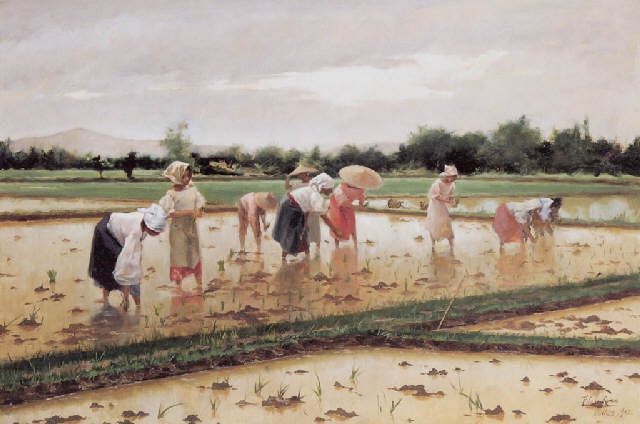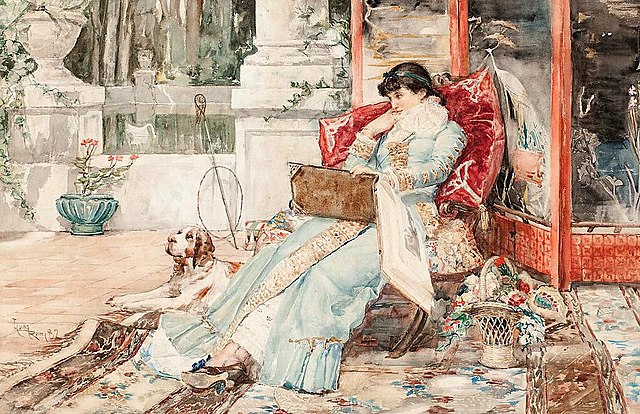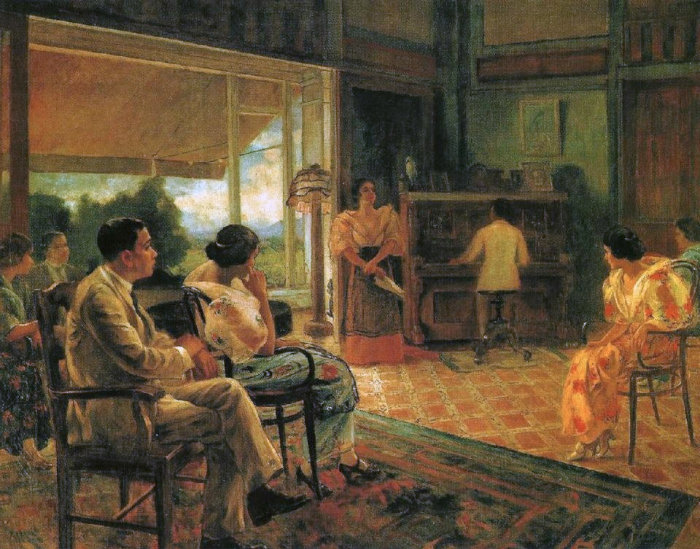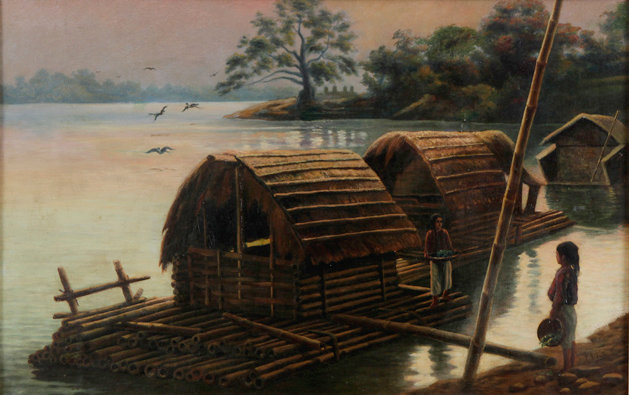
Through the generosity of Professor Benedict Anderson and Ajarn Charnvit Kasetsiri, different translations of an important work of Filipino literature have been acquired by the Thammasat University Libraries. Noli Me Tángere is a novel written by José Rizal (1861-1896), an ophthalmologist and activist who worked for peaceful reform of Spain’s colonial rule in the Philippines. Professor Anderson was so impressed by Noli Me Tángere that he wrote a book analysing it and Rizal’s other writings.
Both are shelved in the Charnvit Kasetsiri Room of the Pridi Banomyong Library, along with other translations of Noli Me Tángere. The book’s title is a quotation from the Book of John in the Bible, when Jesus Christ has risen from the dead and one of his followers tries to cling to him. Jesus says: Touch me not, [Noli me tangere in Latin] for I am not yet ascended to my Father.
José Rizal was inspired to write his novel after reading an influential American novel of social protest, Uncle Tom’s Cabin by Harriet Beecher Stowe, discussing the cruelties of slavery. Rizal wanted to discuss corruption, and the other problems with Spanish colonization of his country. He chose as a title the expression, Don’t touch me, to suggest that the problems in the Philippines were so severe that they could not even be touched. The novel was finished in 1886, and printed the following year in Berlin, because its social content led to Noli Me Tángere being banned by Spanish authorities in the Philippines. The first Philippine edition was only printed in 1899. Rizal wrote to a friend around this time:
My book made a lot of noise; everywhere, I am asked about it. They wanted to anathematize me [‘to excommunicate me’] because of it… I am considered a German spy, an agent of Bismarck, they say I am a Protestant, a freemason, a sorcerer, a damned soul and evil. It is whispered that I want to draw plans, that I have a foreign passport and that I wander through the streets by night…

At first, Rizal was exiled to Mindanao in the southern Philippines and later arrested for inciting rebellion in his writings. As biographers have explained, these charges were false, since Rizal did not argue for any revolution, but instead for more representation for Filipinos in the Spanish government and more influence over political matters. Although the charges were false, Rizal was nevertheless convicted and executed by firing squad outside Manila in 1896 when he was only 35 years old. As readers of the books of Professor Benedict Anderson remember, he offered many original and thoughtful analyses of nationalism. Professor Anderson defined a nation as a socially constructed community, imagined by people who see themselves as part of the group. His book describing this theory, Imagined Communities, is in the collection of the TU Libraries. Often drawing on evidence from literature, Professor Anderson was naturally fascinated by the example of José Rizal who wrote novels showing national values and qualities of Filipinos, despite the difficulties of life at a time of European colonization. Noli Me Tángere helped to create an idea of what it meant to be Filipino. Its characters, for better and worse, also became typical examples of the good and bad sides of the situation. Rizal became so important to his fellow Filipinos that in 1956, the Congress of the Philippines Congress passed legislation known as the Rizal Law, requiring Philippine schools to teach Noli Me Tángere as part of the curriculum. Adaptations for theater, television, opera, and film have spread the fame of the novel. One of the earliest versions in other media was a short silent film in 1915 by Edward M. Gross, who had already made a film on the life of Rizal three years earlier. In 1997, Professor Anderson wrote an article in the London Review of Books explaining the novel’s attraction:
The two most astonishing features of Noli Me Tángere are its scale and its style. Its characters come from every stratum of late colonial society, from the liberal-minded peninsular Captain-General down through the racial tiers of colonial society – creoles, mestizos, chinos (‘pure’ Chinese) to the illiterate indio masses. Its pages are crowded with Dominicans, shady lawyers, abused acolytes, corrupt policemen, Jesuits, smalltown caciques, mestiza schoolgirls, ignorant peninsular carpetbaggers, hired thugs, despairing intellectuals, social-climbing dévotes, dishonest journalists, actresses, nuns, gravediggers, artisans, gamblers, peasants, market-women and so on. (Rizal never fails to give even his most sinister villains their moments of tenderness and anguish.) Yet the geographical space of the novel is strictly confined to the immediate environs of the colonial capital, Manila. The Spain from which so many of the characters have at one time or another arrived is always off-stage. This restriction made it clear to Rizal’s first readers that ‘The Philippines’ was a society in itself, even though those who lived in it had as yet no common name. That he was the first to imagine this ‘social whole’ explains why he is remembered today as the ‘First Filipino.’

Praising its combination of melodrama and satire, Professor Anderson notes that its
melodramatic plot is interspersed not only with brilliant sketches of colonial provincial society, but with the novelist’s own unquenchable laughter at the expense of his own inventions…
In 2003, in a more academic context, Professor Anderson published Forms of Consciousness in Noli me Tángere, an article in Philippine Studies, a publication of the Ateneo de Manila University, a private research university in Quezon City, Philippines, one of the nation’s oldest higher institutions of learning. Professor Anderson writes:
For some years now I have been struck by some odd features in much of the critical literature on José Rizal’s two extraordinary novels. For example, it is quite surprising that so few people have considered seriously the identity of the author’s intended audience(s). Even fewer have looked carefully at how the complexities of race and ethnicity are played out in their pages. There has also been a common tendency to quote phrases or passages as directly expressing Rizal’s often contradictory opinions, as if the novels were really political-ethical treatises, without paying careful attention to the distribution of key terms which characters use the terms, how often, and to which interlocutors. I should add immediately that I in no way exempt myself from the above criticisms. Accordingly, it seemed a good idea to attempt a systematic, quantified study of significant elements of vocabulary, style, and context in both novels, treating them above all as novels.
In his close linguistic reading of Rizal’s works, Professor Anderson relies on biographical details, especially drawn from the author’s letters to friends and collaborators. In Under Three Flags: Anarchism and the Anti-Colonial Imagination, also shelved in the Charnvit Kasetsiri Room of the Pridi Banomyong Library, Professor Anderson further explored the impact of the life, death, and writings of José Rizal. It is a privilege for TU students and ajarns to be able to read the personal copies of these books once owned by Benedict Anderson. In 2015, Filomeno V. Aguilar, Jr., professor in the Department of History and former dean of the School of Social Sciences, Ateneo de Manila University, as well as chief editor of Philippine Studies: Historical and Ethnographic Viewpoints, wrote an appreciation of Professor Anderson’s in-depth research on Filipino history and culture:
In Under Three Flags, Ben Anderson completely recast [José Rizal’s death] as more than simply a Philippine event…Ben Anderson made us realize that, even without digital communication technologies, Rizal’s execution was world news and had global ramifications… Ben was glad to have put the Philippines on the global academic map. It was his way of giving back to the country he loved.

(All images courtesy of Wikimedia Commons)
